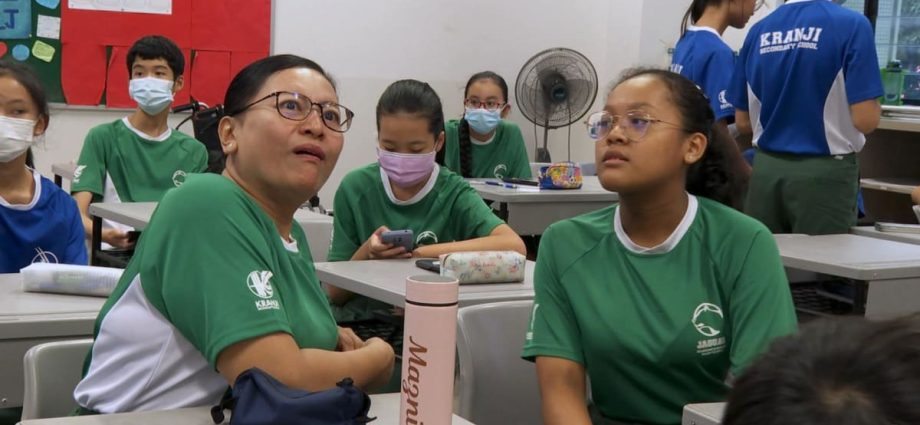
“I had to call her by her name because I didn’t want my mother to be treated like … my mother,” he said. “Instead, I want to let her experience what it’s like being a student.”
Soh concluded: “He’s quite scary when he’s a leader. He’s very firm.”
TAKING TESTS, BUILDING BONDS
Usually, parents are the ones telling their children what they should do or telling them things like, they could have scored higher on their tests. But when parents must take the tests too, the boot is on the other foot.
That was among the experiences of the parents that the series explored. Diana Raja, for example, thinks her daughter, Arradana, could pay more attention to her mother tongue subject, Tamil, and put more effort into speaking it.
But when Diana had to take a Secondary Two test, alongside her daughter at Christ Church Secondary School, she had “1,000 butterflies” in her stomach.
“I can speak Tamil well,” she said. “But if you ask me about writing, I’m not good at it.”
The written test was a weighted assessment, which students take throughout the year. These evaluations contribute to their grades at the end of the year.
Before the test results were out, Diana had one “main concern” as a mother.
“If I (score) lower than (Arradana), she’s going to tell me, ‘Mum, firstly, … you didn’t even score well, so don’t come and tell me to study or do this,’” Diana said.
So how did she score? And how did she handle it? All is revealed in the series; her daughter, for one, passed.
WATCH: Part 3 — Mums take difficult exams with their children (22:58)

